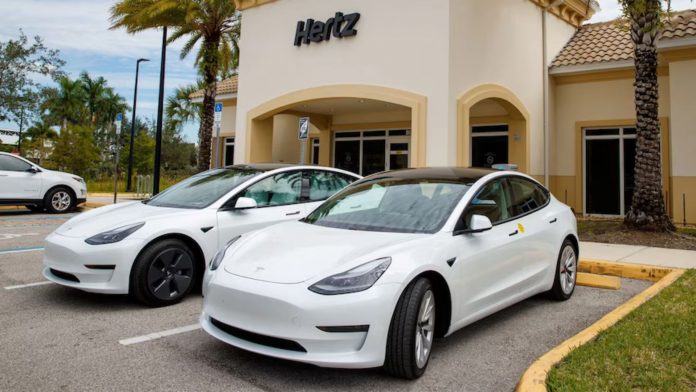The well-known rental car company Hertz Global Holdings announced that it would sell around one-third of its EV fleet since it depreciated faster than anticipated. The decline in value is a setback to the company’s ambitions to replace gas vehicles with zero-emission vehicles.
In a federal filing on January 11, Hertz stated it started selling around 20,000 EVs from its U.S. fleet. The company said it would continue this process throughout the year, citing the decreased demand for EVs, which leads to a decrease in their resale value, and the increased costs associated with collision and damage to EVs as the primary reasons behind the decision.
Hertz’s CEO, Stephen Scherr, stated, “Some of these EVs have become uneconomical for us.” Senator John Barrasso told the Senate Committee on Energy and Natural Resources that Hertz’s decision demonstrated that EVs are expensive and unpopular. “The EV demand is stagnating,” he declared. However, Scherr attributed much of the responsibility for the rental car company’s decision to sell its EVs to Tesla, which manufactures roughly half of all EVs sold in the US.
Meanwhile, last fall, General Motors CEO Mary Barra announced that the company plans to manufacture one million electric vehicles (EVs) in North America by the end of 2025. However, Barra also mentioned that if there is not enough demand for one million EVs, GM won’t produce them. In addition, the company won’t manufacture 400,000 EVs between June 2022 and June 2024 if there isn’t sufficient demand for them.
GM had aimed to produce 150,000 EVs in 2020, with new models comprising half of the total. However, it fell short of this target, selling only 75,883 units in total. Most of these were the slightly larger Bolt EUV and the Chevrolet Bolt compact, which are less expensive and don’t use the Ultium propulsion system. This propulsion system is about to be phased out in its current configuration.



